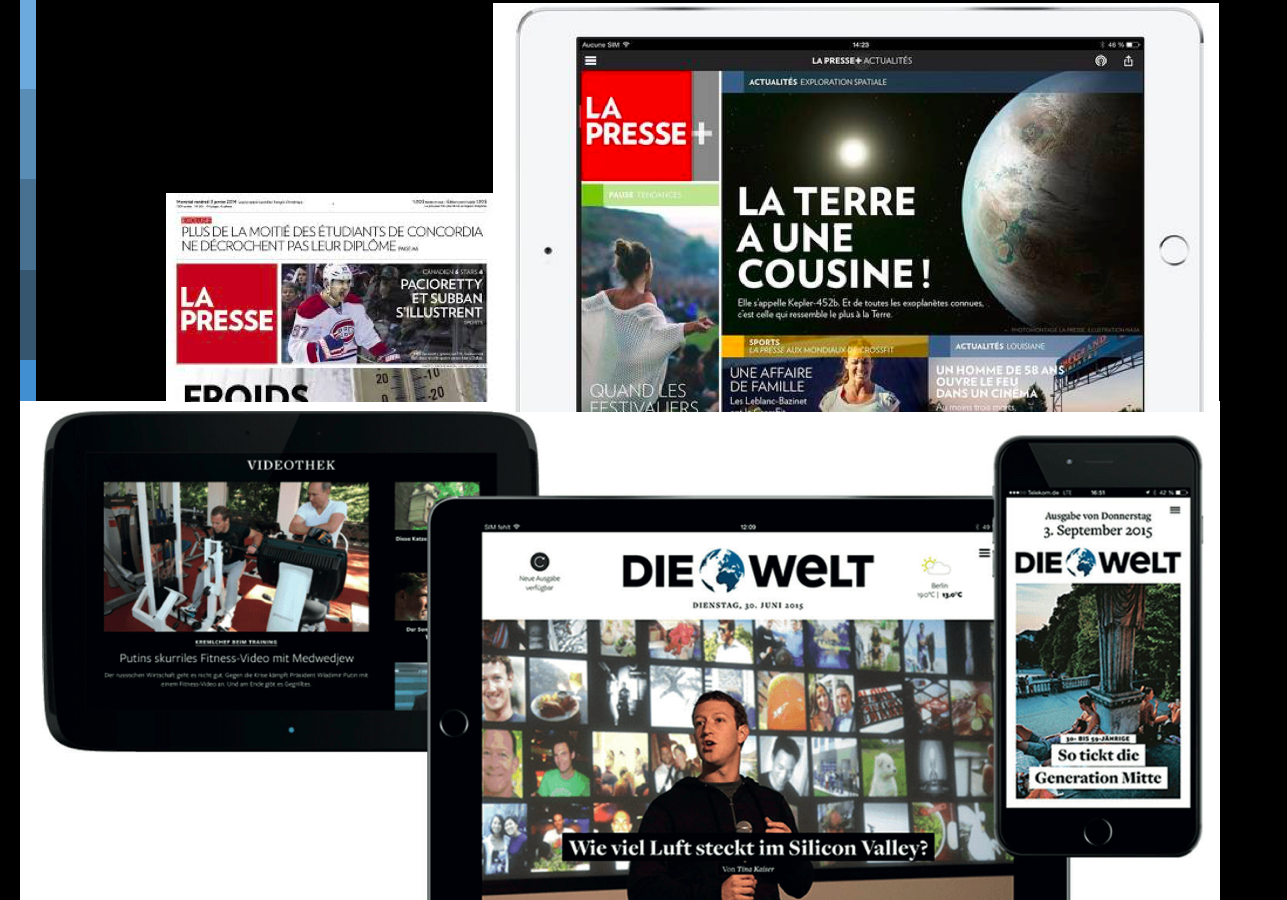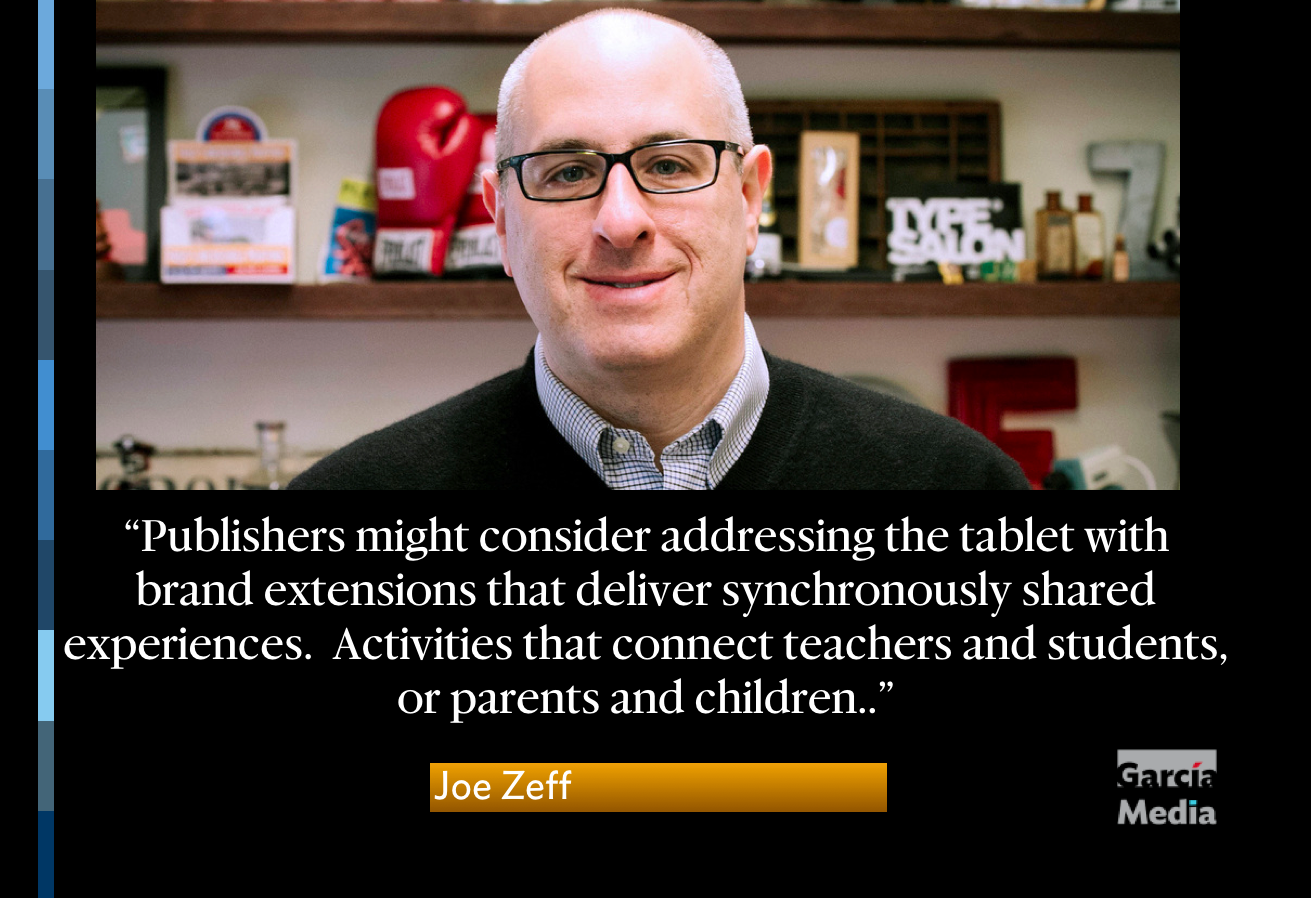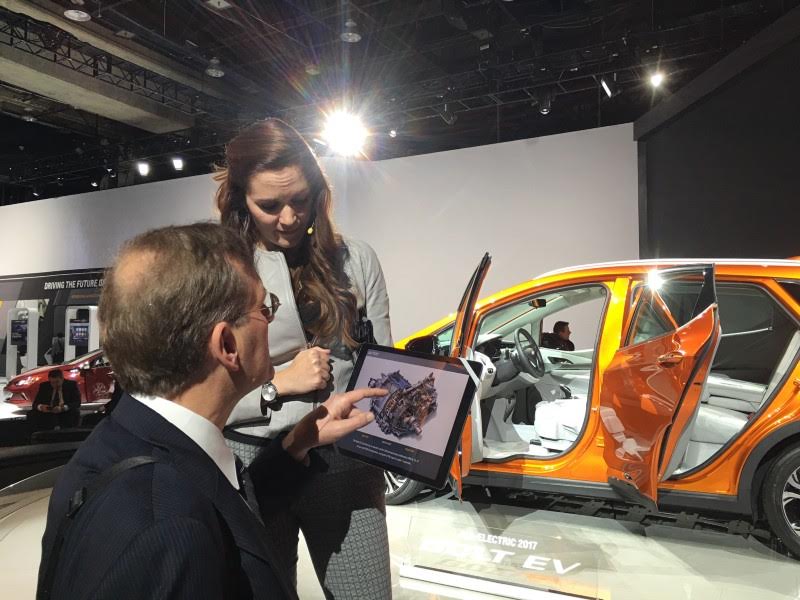
The subject of tablets and the news media continues to be timely, especially for TheMarioBlog, where we have been discussing it the last few days, including Monday, showcasing the beautiful tablet edition of Germany’s Die Welt. Several of you have emailed me with the question: “Indeed, this Die Welt product is aesthetically beautiful, but why only 5000 susbscribers?”
I had barely posted the Die Welt blog post when I saw a piece written by Joe Zeff titled, appropriately, Tablets are not Dead.
Highlights of Joe’s piece:
iPad here to stay: “Android tablets may be going away, but the iPad isn’t. And won’t be.”
Apps: ”Connected apps change the way managers manage, salespeople sell and shoppers shop. As that happens, iPads become indispensable.”
Mobility: “Tablets give businesses the ability to deploy salespeople anywhere — in a coffee shop, a living room, even a bar stool — with interactive touchscreens that educate and excite consumers.”
End of the laptops: “With more capable hardware, apps that do more, and more people who need to work anywhere, tablets will replace laptops.”
Questions for Joe Zeff


The tablet as sales tool: A product specialist uses an app created using ScrollMotion to engage a potential customer at the Detroit Auto Show earlier this year, where GM debuted a new electric car.
I asked Joe what some readers are asking me:
Why is it that a beautifully designed and journalistically robust tablet edition, such as Die Welt, does not attract the masses.
Here is Joe’s take:
“The iPhone is where we experience content alone, and share asynchronously with others. The iPad is where we experience content together, at the same time. It is where we connect.
“That’s why businesses use iPads for sales presentations. It’s a great way to show something to another person who happens to be there. To connect. That’s also why publishers have failed to build audience for tablet editions. They are creating experiences intended to be ingested alone.
“I’m typing this on a train on my phone, with a brand new iPad Pro and keyboard in my bag. I’m alone. I use my phone. When I get to work and need to show something to another person, or a group, I use my tablet. “
Mario: As someone who has worked with some of the largest publishers, among them The New York Times and TIME Magazine, what would you suggest as a strategic move for publishers and the iPad?
“Publishers might consider addressing the tablet with brand extensions that deliver synchronously shared experiences. Activities that connect teachers and students, or parents and children. As businesses increasingly turn to tablets, opportunities emerge to feed them content that can educate and excite their employees and customers.
“Consumers have demonstrated that when it comes to content consumption, particularly when alone, they’re perfectly satisfied with their phones. Businesses have other needs — to connect in person, which is where tablets shine.”
Of related interest
For La Presse, the tablet is the future as it leaves print behind
Highlight:
Around 250,000 unique devices access La Presse+ every weekday, a number higher than La Presse's circulation peak in print in 1971 when it sold 221,250 copies.
Some 100,000 new devices have started using the app weekly since the plans to discontinue the weekday print edition of La Presse were announced – the Saturday edition continues to be published in print